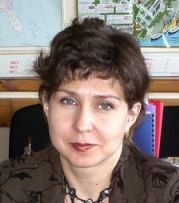Olga Gennadievna Melnik
+7(928) 770-37-55
Associate Professor
Institute of Management in Economic, Ecological and Social Systems

Research interests:
Deixis Theory
Teaching English as a Foreign Language
Applied Linguistics
English for Specific Purposes
Discourse Studies
Cognitive Linguistics
Translation Studies
Contrastive Linguistics
Metaphorology
Space Linguistics
Research projects:
The study of theoretical literature on the problem of space makes it possible to assert that so far there has been done a lot in the examination of this language phenomenon both for the general conception and for the revelation of its means of expressions in particular languages. Nevertheless, the linguistic analysis in its modern form makes it possible to exceed the limits of proper linguistic observations and to make assumptions on the organization of human intellect. The necessity of such researches has been mentioned in the linguistic literature time and again. N. Shvedova put forward the idea that the deictic elements mean the global concepts of material and spiritual world and consequently they exist on all the language levels. Thus, the categorial meaning of the parts of speech indicates the mode of referent representing in our consciousness. The grammatical categories meaning indicate the referent status in cognitive acts. Syntactic deictics indicate the most important communicative aspects of speech activity: affirmation, negation, interrogation, impulsion, already known and new information, the main and the subordinate. Therefore, the deictic meaning represents the main basis of all the language system. It is arguable that the deictic function can be fulfilled by all the language meanings (to a greater extent by the abstract meanings, and to a lesser extent by the concrete ones), because any language meanings, first of all, indicate the boundaries of denotatum, and only then they reflect the inner structure of the denotatum by means of connection with our conception and impression of the object reflected in our consciousness. Proceeding from the current understanding of functional grammar, we naturally moved in our research to the analyses of a broader problem – the role of human factor in language. We argue that it is quite natural to combine in such a study cognitive analyses with the communicative. In this project we aim to characterize a small part of the world picture categorizing space in modern English and Russian to determine which ways of categorization of space are universal and which ones are nationally specific. Consequently the project devoted to the complex description of the category of space should aspire to fill in the deficit of such researches. The project will result in publishing a series of articles and a book on the problem of spatial deixis.
Teaching:
-
Practical English Grammar
The course is supposed to ensure the understanding of grammatical structure peculiarities and contribute the mastering of language norms and the skills of effective communicative impact and cooperation.
-
Professionally oriented translation
The course gives an overview of stylistic, lexical and grammatical features of English technical texts. It considers the ways of translating typical syntactical structures, simple and compound terms, structural features of different genres of technical literature.
-
History of the English language
The course forms the understanding of interdependence between the history of languagу and the history of nation, the reasons of language changing, historical and linguistic conditions of the language formation, the evolution of forms of language existance, the periodisation of its history, the grammatical and phonetic systems formation, the main tendences of its development.
-
English as the Second Language (ESL)
The course gives an overview of the cultural context, helps to develop creative thinking, broadens the mind, contributes to successful socialisation, asa well as teaches the basic spoken vocabulary and grammar structures.
-
English for Specific Purposes (ESP)
The course aims to teach the skills of professional oral and written communication, ability to search, systematize and generalize information in the sphere of future profession.



